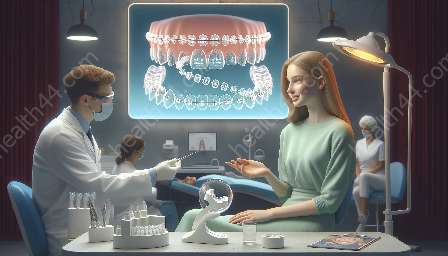How Invisalign Impacts Dental Health
Invisalign has revolutionized orthodontic treatment, offering patients a discreet and convenient way to achieve a straighter smile. While the cosmetic benefits of Invisalign are well known, many patients and even some dentists may not fully understand the broader impact of Invisalign on overall dental health.
In this article, we will explore how Invisalign treatment can positively impact the overall dental health of patients and provide insights from dentists who work with Invisalign on a regular basis.
The Alignment of Teeth and Overall Dental Health
One of the most crucial ways that Invisalign impacts dental health is by improving the alignment of the teeth. Misaligned teeth can contribute to various dental issues, including overcrowding, difficulty with cleaning, and even jaw pain. Invisalign works to gradually shift the teeth into the proper alignment, which can alleviate these issues and promote better overall dental health.
Improved Oral Hygiene
Patients who undergo Invisalign treatment often experience improved oral hygiene. Unlike traditional braces, Invisalign aligners are removable, allowing for easier brushing and flossing. This can lead to a decrease in plaque buildup, as well as a reduced risk of developing cavities and gum disease.
Prevention of Dental Complications
By addressing misalignments, Invisalign can prevent a range of dental complications. These may include issues such as uneven wear on the teeth, temporomandibular joint disorder (TMJ), and bruxism. A well-aligned smile is more likely to function properly and reduce the risk of these types of dental problems.
Impact on Confidence and Dental Health
Beyond the physical aspects of dental health, Invisalign can also have a profound impact on a patient's confidence and mental well-being. When individuals are unhappy with the appearance of their smile, they may be less likely to prioritize oral hygiene and regular dental care. Invisalign can boost self-esteem and encourage better maintenance of dental health, thereby creating a positive ripple effect in overall well-being.
The Role of Dentists in Invisalign Treatment
Dentists play a critical role in guiding patients through the Invisalign treatment process and monitoring the impact on their dental health. As experts in oral health, dentists are able to assess how Invisalign is positively influencing the overall dental health of their patients and make any necessary adjustments to ensure optimal results.
Providing Personalized Care
When dentists recommend Invisalign, they can tailor the treatment to address specific dental health concerns. Through personalized treatment plans, dentists can target issues such as overcrowding, misalignments, and bite problems, ultimately leading to improved dental health outcomes for their patients.
Educating Patients
Dentists have the opportunity to educate patients about the impact of Invisalign on their dental health. By explaining how Invisalign can address not only cosmetic concerns but also functional and health-related issues, dentists empower their patients to make well-informed decisions about their orthodontic treatment.
Monitoring Progress
Throughout the course of Invisalign treatment, dentists closely monitor the progress of their patients' dental health. Regular check-ups and assessments allow dentists to track improvements in alignment, oral hygiene, and overall oral health, reinforcing the positive impact of Invisalign on their patients.
Challenges and Considerations for Dentists
While Invisalign offers numerous benefits for dental health, dentists also face certain challenges in managing Invisalign treatment effectively.
Compliance and Treatment Adherence
Ensuring patient compliance with wearing the aligners for the recommended duration can be a challenge for dentists. Educating patients about the importance of consistent wear and providing support to address any issues that arise can help dentists overcome this obstacle.
Addressing Orthodontic Issues
For dentists, addressing complex orthodontic issues through Invisalign treatment requires a high level of expertise. Dentists need to have a deep understanding of dental anatomy, occlusion, and biomechanics to effectively address challenging cases with Invisalign.
Conclusion
In conclusion, Invisalign has a multifaceted impact on the overall dental health of patients, providing benefits beyond just a straighter smile. From improved alignment and oral hygiene to the prevention of dental complications, Invisalign can make a positive difference in patients' dental health. Dentists play a pivotal role in guiding patients through Invisalign treatment, providing personalized care, education, and monitoring to ensure favorable outcomes. While there are challenges to consider, the overall impact of Invisalign on dental health is a testament to its effectiveness as a modern orthodontic solution.


